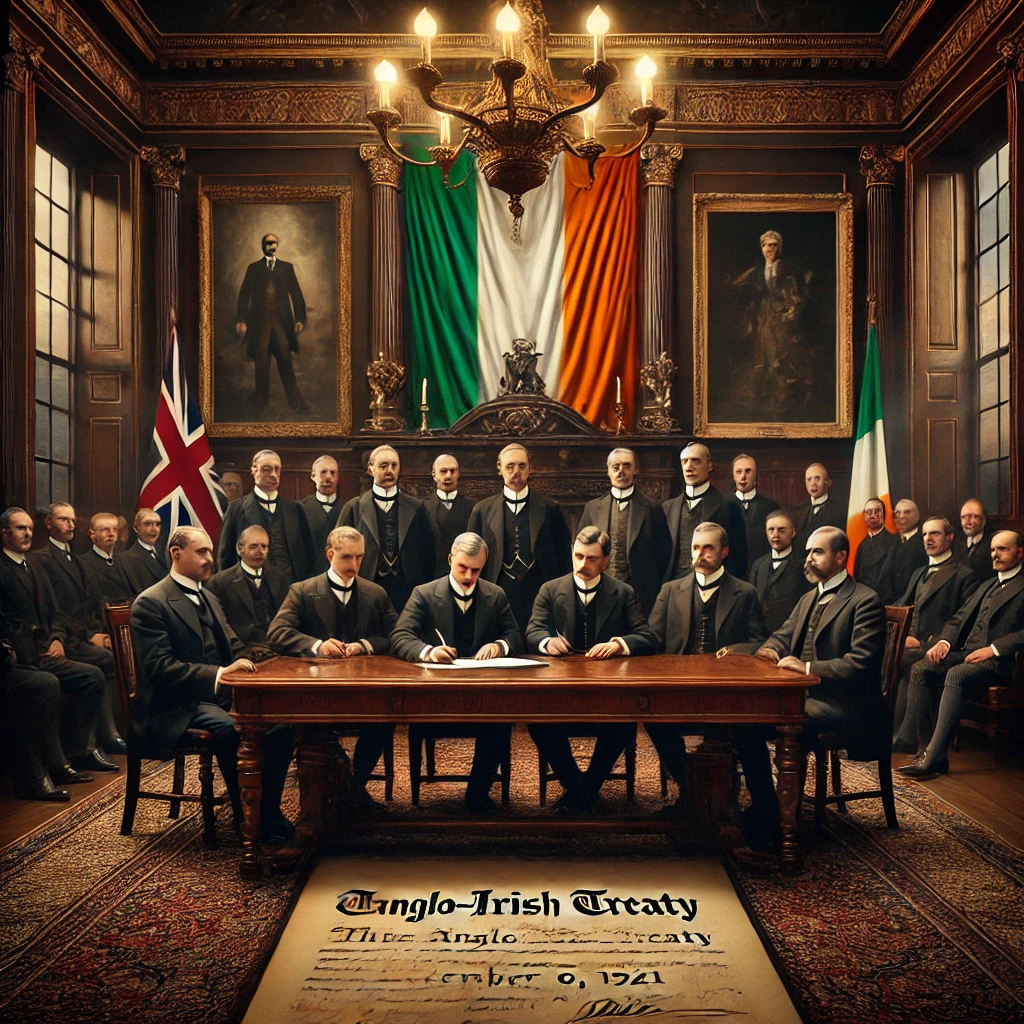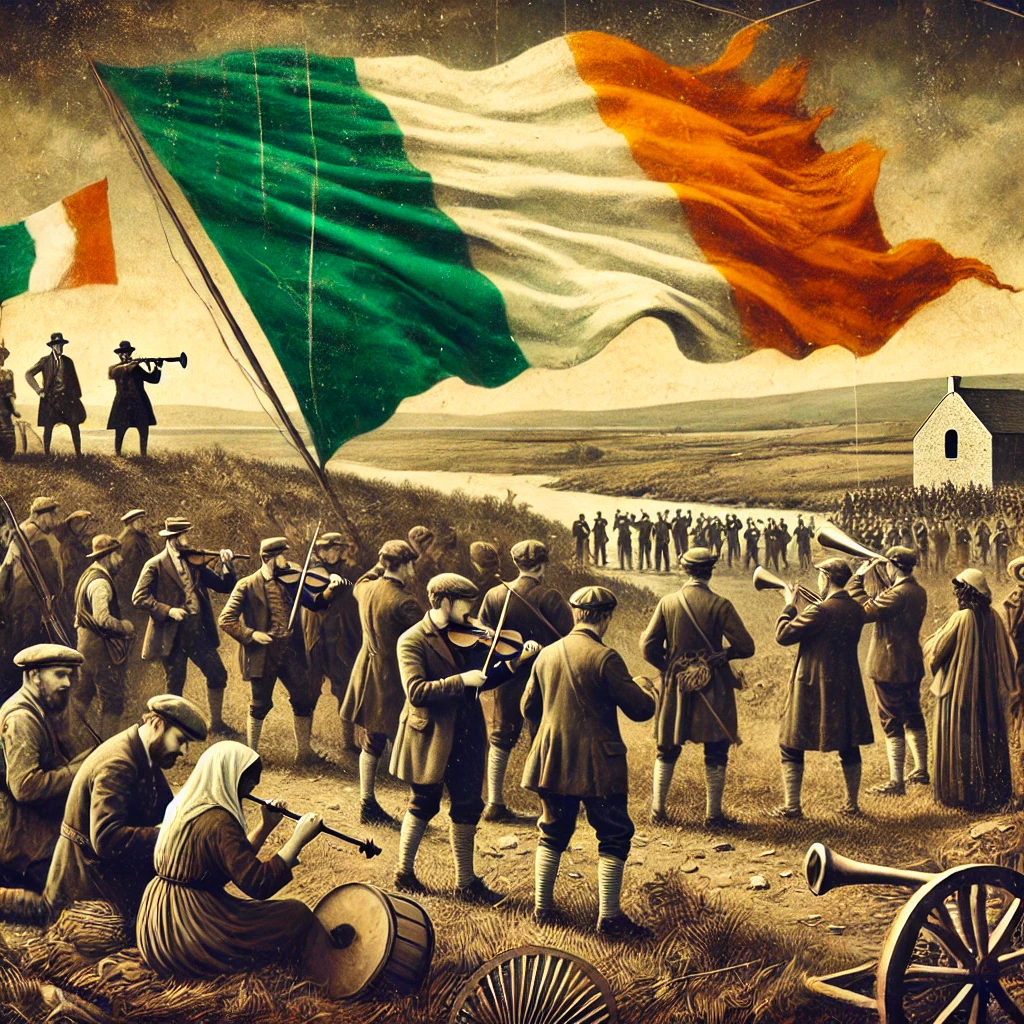On December 6, 1921, a pivotal moment in Irish history unfolded with the signing of the Anglo-Irish Treaty. This agreement between representatives of the British government and Irish leaders marked the culmination of decades of struggle for Irish autonomy. It established the Irish Free State, granting the 26 southern counties of Ireland the status of a self-governing dominion within the British Commonwealth. While falling short of full independence, the treaty represented a monumental step forward for Irish sovereignty, creating a framework for the nation’s political evolution.

The treaty was signed after months of negotiation between the British delegation, led by Prime Minister David Lloyd George, and the Irish team, including Michael Collins and Arthur Griffith. The agreement included contentious provisions, such as the requirement for Irish parliamentarians to swear allegiance to the British Crown, which ignited debate and division within Ireland. Nonetheless, for many, the treaty symbolized a pathway to freedom after centuries of British rule.
The Road to Independence: Sacrifice and Struggle
The establishment of the Irish Free State was the result of years of persistent resistance and rebellion. From the failed uprisings of the 19th century to the 1916 Easter Rising, Irish nationalists consistently challenged British authority. The War of Independence (1919–1921) intensified this struggle, with the Irish Republican Army (IRA) employing guerrilla warfare against British forces.

The treaty itself was a compromise born of this conflict. While it fell short of full independence, it granted Ireland substantial autonomy. The Free State’s establishment also allowed Northern Ireland to opt out and remain part of the United Kingdom, which created a lasting division on the island. This compromise led to the Irish Civil War (1922–1923), as factions within Ireland clashed over the terms of the treaty. Despite this turbulent beginning, the creation of the Free State laid the foundation for Ireland’s eventual declaration as a fully independent republic in 1949.
Legacy of the Irish Free State

The establishment of the Irish Free State marked a turning point in Ireland’s history, one whose effects are still felt today. The event underscored the importance of negotiation and compromise in resolving deeply entrenched conflicts. It also demonstrated the challenges of nation-building in a divided society, lessons that resonate in political contexts worldwide.
In contemporary Ireland, the legacy of 1921 is evident in its status as a thriving independent nation. The treaty’s initial compromises paved the way for Ireland’s gradual assertion of full sovereignty and its emergence as a key player in global affairs. Domestically, the partition of the island remains a source of political and cultural tension, as calls for Irish unity continue to shape discourse.
The story of the Irish Free State is a testament to the resilience of the Irish people and their enduring pursuit of self-determination. While the road to independence was fraught with challenges, the events of December 6, 1921, signify a triumph of will and vision—a milestone that changed the trajectory of Ireland’s history forever.
